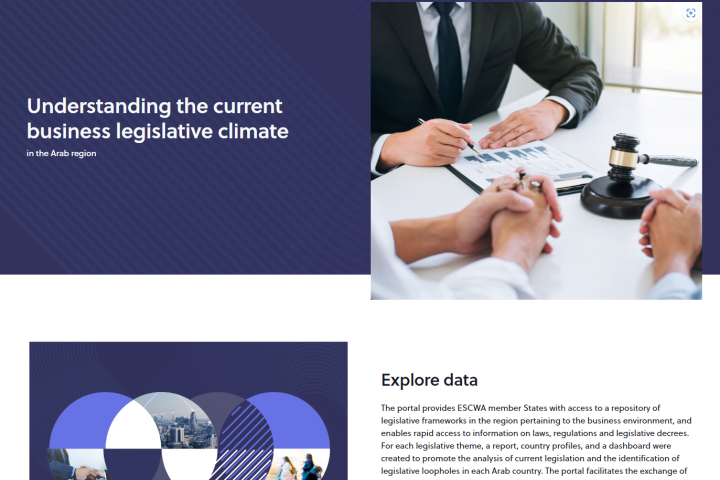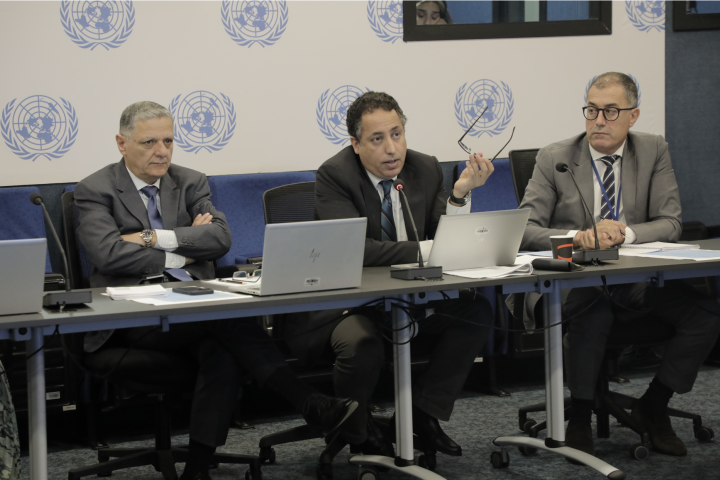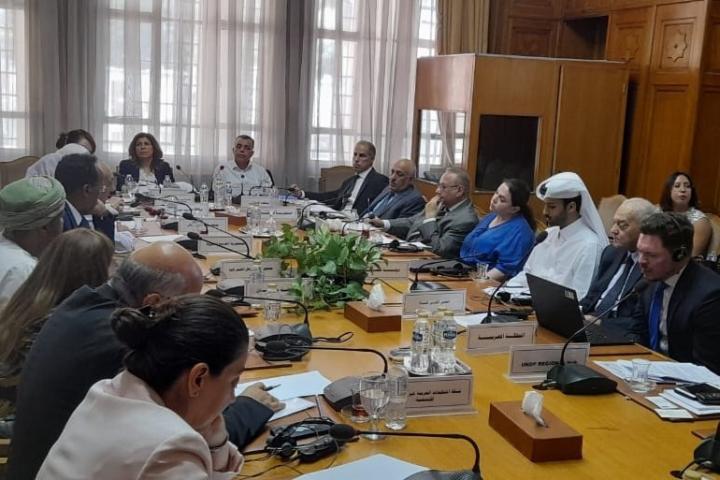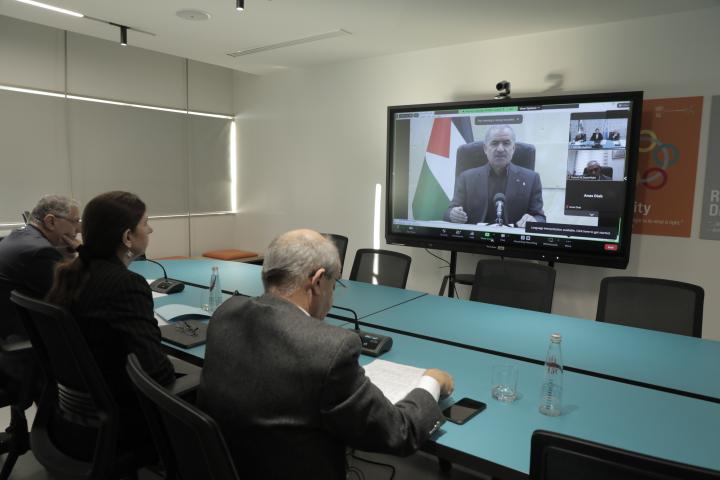Beirut, 12 February 2018 (Communication and Information Unit)--The Economic and Social Commission for Western Asia (ESCWA) has launched two new studies under its National Agenda for the Future of Syria (NAFS) Programme which provide constitutional options and foundations for future elections in the country.
To discuss the findings of these reports, two meetings at the UN House in Beirut on 9 and 12 February brought together Syrian and international experts as well as opinion leaders and international stakeholders. Events such as these are within the mandate of the NAFS Programme, whose experts produce technical input to inform the international peace process and host discussions between Syrians on post-conflict recovery and rebuilding.
The first study, Constitutional Options for Syria, is the outcome of discussions held between Syrian constitutional experts. It recommends the adoption of a temporary constitution in the aftermath of an inclusive political settlement, and emphasizes the need to address urgent issues created by the conflict that are theoretically temporary and therefore do not belong in a permanent constitution.
These issues include the rights of refugees and internally displaced persons; citizenship and personal identity issues; decommissioning of militias and their reintegration into the Syrian military or the Syrian society; resolving property disputes created by the conflict; transitional justice and national reconciliation measures.
The study underlines how the conflict has created deep divisions within the Syrian society, and therefore recommends that crafting and adopting a permanent constitution should not be rushed. Instead, the constitution should be the result of an inclusive process of national consensus that includes the voices of all segments of Syrian society and refugees. This can give it more legitimacy, promote the development of programmatic political parties, and give Syrian civil society the opportunity to be prepared to play a key role in the process.
The second study, Laying the Foundations for Future Elections in Syria, is the product of a partnership with the International Institute for Democracy and Electoral Assistance (IDEA). It reflects the outcomes of discussions between Syrian electoral and legal experts at meetings held within the framework of the NAFS Programme.
This study highlights that the electoral process, as envisaged in Security Council Resolution 2254, has a greater chance of succeeding if the election results reflect a true representation of the freely exercised democratic will of the Syrian electorates. It also calls for essential steps to be taken to ensure that elections, which are by nature contentious, do not disrupt ongoing efforts towards peace. Meanwhile, it also recommends that emphasis be placed on the importance of Syrian citizenship and exclude any discrimination on the grounds of race, color, gender, language, religion, political opinion, national or social origin, wealth, birth, or any other type.
The study further recommends that the electoral process be fully accessible to Syrians at home and abroad, and by extension, that all practical and legal burdens related to voting and refugee or IDP status be addressed. While temporary measures may be required to ensure that the first elections after the resumption of peace are free and fair, it is also essential to address ways of making the electoral process sustainable in the future.
Finally, the study recommends measures and related steps to promote the legitimacy of the process for Syrian electoral stakeholders, and to ensure the independence of the electoral process as well as the openness and inclusivity of the electoral law-making process and electoral operations. This includes the adoption of measures to ensure that the risk of electoral fraud, voter intimidation and all other forms of electoral crime or misconduct is minimized.
The NAFS Programme was launched by ESCWA in 2012. It provides a platform for technical dialogue between Syrians from different backgrounds to discuss policy alternatives tailored to meet the social, economic and governance-related challenges Syria will likely face post-conflict. The outcomes of this platform are shared with our large and expanding network of Syrian, regional and international stakeholders, including, but not limited to, those involved in the political process.
For more information: https://www.unescwa.org/nafs
*****
ECIU Contacts:
Nabil Abu-Dargham +961-70-99 31 44; email: dargham@un.org
Ms Rania Harb: +961-70-008879 harb1@un.org
Ms Mirna Mahfouz: +961-70-827372 mahfouz@un.org
Mr Haidar Fahs: +961-70-079021 haydar.fahs@un.org



